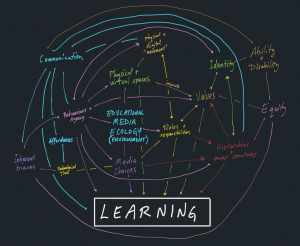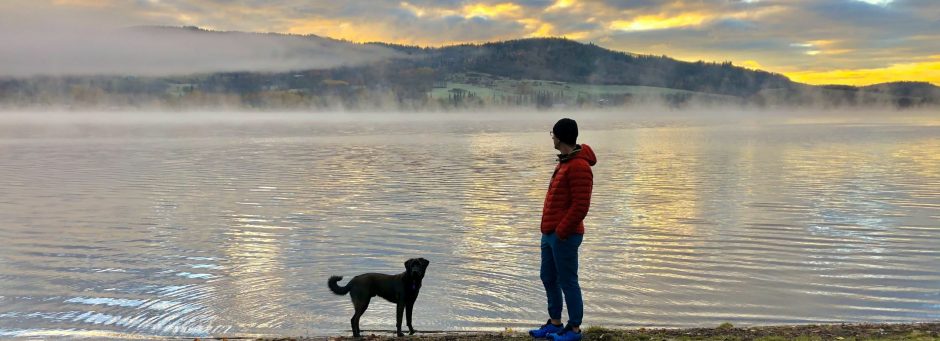
Educational Media Ecologies
Based on Strate and Lum’s biography of Lewis Mumford’s scholarly contributions, as well as Lum’s paper on the intellectual roots of media ecology, and de Castell’s (et. al) Building as interface, I think of media ecologies as the way an environment evolves through the interplay between media, technology, and agents. It is especially helpful to think of media ecologies in metaphorical terms as originally coined by Marshall McLuhan’s. No single species acts outside of its context, as selective pressures cause evolutionary changes over time in order to survive. Lum states that media struggle to survive in a complex ecology of social forces (2000, p. 1).
From an educational perspective lens, media ecology would consider how learning happens as a result of media and technology choices. Historically, many of the educational media choices have been made by those who are not necessarily the ones who would make use of it, resulting in suboptimal outcomes. I started tossing around different elements that one might include in an educational media ecology, and as I wrote down my ideas I kept on coming up with more elements that ought to be included. What’s more, is that I’m not entirely sure where it all “starts”, if anywhere. When I think of media and technologies, I keep coming back to how any specific medium or tool ends up in an educational setting. Someone somewhere made a decision, and it’s those decisions that fascinate me.
Inherent in those decisions, are values and ideals that impact the entire educational media ecology. Much like the biological systems metaphor, there are trickle-down effects from any measurable change in the web. Those embedded values work to shape the learning landscape in one way or another, for better or for worse.
The affordances and biases of the tools, media, and values we work with affect how we communicate with one another, how we view ourselves and empathize with others, the hierarchical structures and power imbalances of learning settings, the rate and efficacy of the learning itself, and ultimately our behaviour and agency. Educational media ecologies are the critical landscape that set trajectories of affordances that impact almost every facet of what education has been, is, and ought to be.
References
Castell, S. d., Droumeva, M., & Jenson, J. (2014). Building as interface: Sustainable educational ecologies. MedienPädagogik, 24(24), 75-93. doi:10.21240/mpaed/24/2014.09.08.X
Lum, C. M. K. (2000). Introduction: The intellectual roots of media ecology. New Jersey Journal of Communication: The Intellectual Roots of Media Ecology, 8(1), 1-7. doi:10.1080/15456870009367375
Strate, L., & Lum, C. M. K. (2000). Lewis Mumford and the ecology of technics. New Jersey Journal of Communication: The Intellectual Roots of Media Ecology, 8(1), 56-78. doi:10.1080/15456870009367379
